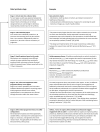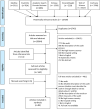Understanding how and why audits work in improving the quality of hospital care: A systematic realist review
- PMID: 33788894
- PMCID: PMC8011742
- DOI: 10.1371/journal.pone.0248677
Understanding how and why audits work in improving the quality of hospital care: A systematic realist review
Abstract
Background: Several types of audits have been used to promote quality improvement (QI) in hospital care. However, in-depth studies into the mechanisms responsible for the effectiveness of audits in a given context is scarce. We sought to understand the mechanisms and contextual factors that determine why audits might, or might not, lead to improved quality of hospital care.
Methods: A realist review was conducted to systematically search and synthesise the literature on audits. Data from individual papers were synthesised by coding, iteratively testing and supplementing initial programme theories, and refining these theories into a set of context-mechanism-outcome configurations (CMOcs).
Results: From our synthesis of 85 papers, seven CMOcs were identified that explain how audits work: (1) externally initiated audits create QI awareness although their impact on improvement diminishes over time; (2) a sense of urgency felt by healthcare professionals triggers engagement with an audit; (3) champions are vital for an audit to be perceived by healthcare professionals as worth the effort; (4) bottom-up initiated audits are more likely to bring about sustained change; (5) knowledge-sharing within externally mandated audits triggers participation by healthcare professionals; (6) audit data support healthcare professionals in raising issues in their dialogues with those in leadership positions; and (7) audits legitimise the provision of feedback to colleagues, which flattens the perceived hierarchy and encourages constructive collaboration.
Conclusions: This realist review has identified seven CMOcs that should be taken into account when seeking to optimise the design and usage of audits. These CMOcs can provide policy makers and practice leaders with an adequate conceptual grounding to design contextually sensitive audits in diverse settings and advance the audit research agenda for various contexts.
Prospero registration: CRD42016039882.
Conflict of interest statement
The authors have declared that no competing interests exist.
Figures
References
-
- McDonald KM, Chang C, Schultz E. Closing the quality gap: revisiting the state of the science. Rockville (MD); 2013. - PubMed
Publication types
MeSH terms
LinkOut - more resources
Full Text Sources
Other Literature Sources
Medical



